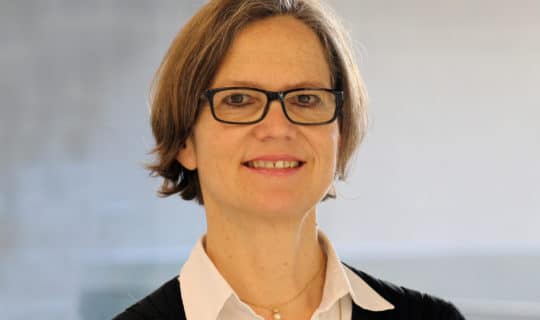
Professor Sabine Werner
Institute of Molecular Health Sciences, ETH Zürich, Switzerland
- 18:00
- Online , https://monash.zoom.us/j/8331105277 3?pwd=SmF4cS9hRXprbGFuL0daLzA wNzNzZz09
- Dr Harald Janovjak
Parallels between tissue repair and cancer: the fibroblast perspective
Abstract
There are remarkable parallels between tissue repair and cancer. An important common feature in both conditions is the migration and proliferation of fibroblasts and alterations in their gene expression program. Transcriptional profiling of wound fibroblasts identified strong expression of genes controlling cell migration and proliferation and deposition of extracellular matrix in wounded skin and in skin cancers. Importantly, upregulation of this wound healing signature also occurs in cancers and correlates with their malignancy. We show that many wound- and cancer-regulated genes are under control of activin A or of the Nrf2 transcription factor. Overexpression/activation of activin or Nrf2 promotes wound healing, but also differentiation of normal skin fibroblasts into cancer-associated fibroblasts, which produce a pro-tumorigenic matrisome and secretome. Targeting these pathways is a promising approach for the promotion of wound repair, but also for cancer prevention and treatment.
Bio
Sabine Werner studied Biochemistry at the Universities of Tubingen and Munich. She earned her Ph.D. at the University of Munich, after having completed her dissertation in cancer research at the Max-Planck-Institute of Biochemistry in Martinsried, Germany. As a postdoctoral scientist at the University of California San Francisco she worked on the molecular mechanisms of growth factor action and initiated projects on tissue repair. From 1993-1999 she was a group leader at the Max-Planck-Institute of Biochemistry in Martinsried and from 1993-1999 also Associate Professor of Biochemistry at the Ludwig-Maximilians-University of Munich. She has been Full Professor of Cell Biology at ETH Zurich since 1999. The research of her laboratory focuses on the molecular and cellular mechanisms of tissue repair and the parallels to cancer. Sabine Werner is an elected member of the European Molecular Biology Organization (EMBO), the European Academy of Sciences (EurASc) and the German Academy of Sciences (Leopoldina).
